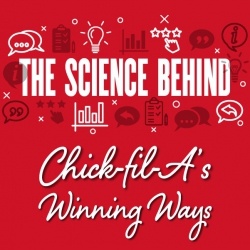 Article
Article
Relationship matters: How relational factors moderate the effects of emotional labor on long-term customer outcomes. Chi, N., & Chen, P.
Journal
Journal of Business Research, February 2019, Volume 95, 277–291
Reviewer
Dr. Michael Gunderson, Director and Professor
Summary
This paper seeks to understand the role of emotional labor on customer loyalty. Emotional labor is a service employee’s ability to manage feelings and expressions when interacting with a customer. The emotional labor literature focuses on two types: deep acting and surface acting. Deep acting is essentially acting with empathy and changing behavior based on reflection of the situation. Surface acting is often associated with faking expressions while hiding one’s real feelings.
Previous work has established that deep acting positively affects customer satisfaction. Surface acting often results in poor customer satisfaction. The previous work focused on the immediate interaction. The authors of this paper focused on the long-term effects of emotional labor in an ongoing service relationship. Related to my last Quarterly Review article (https://agribusiness.purdue.edu/the-quarterly-review//delight-but-not-too-much), customers in ongoing service relationships begin to expect sweetheart or special treatment from service employees. The authors note that repeated service interactions require deep acting (that is, genuine empathy) for long-term customer loyalty. The authors also suggest training programs designed to promote deep acting and limit surface acting. Finally, the ongoing relationships do benefit positively from service sweethearting. The authors suggest a budget or quota of gifts and discounts for key, long-term customers.
What this means for Food and Agricultural Business
Perhaps you read the article about how Chick-fil-A is winning–not because of its delicious sandwiches, but because its employees are polite. If you’ve ever been to a Chick-fil-A, you have probably heard “thank you”. A survey noted that 95.2% of Chick-fil-A drive thru encounters involved an employee saying “thank you”. This is a full 10 percentage points more than drive thru encounters at KFC, and nearly 20 percentage points more than McDonalds. Chick-fil-A leadership pointed toward investments in training that resulted in employees providing a genuinely positive interaction.
The importance of polite interactions is obvious when we are a customer at a fast food restaurant. Is it equally obvious in our own business-to-business interactions? This research article notes that it is even more important for service employees to modify inner feelings in on-going service relationships. If being polite is important in one-time drive thru transactions, it is mission-critical in ongoing service relationships.
Chick-fil-A allocates resources and time to improve employees’ ability to move beyond surface acting into genuine interactions. When was the last time your sales training involved thinking about these attributes of an interaction with a customer? Given its importance, agricultural and food businesses should be dedicating training time to reinforcing genuine interactions. Training on the features and benefits of a product or service interaction should be complemented with some consideration of the manner of that communication. Remind employees that thanking customers for their business is an important part of nurturing an ongoing service relationship.
The second thrust of the research focused on service sweethearting. The results reinforce the notions raised in my last review about customer delight. The authors do note that sweethearting has a positive impact on the long-term relationship. The frequency of sweethearting, however, is not related with most customer outcomes. This reinforces that delighting the customer occasionally prevents establishing an unrealistic expectation of the interaction. In this service sweethearting, some traditional practices in agricultural relationships might be seen as surface acting or trivial. I can still hear my grandfather talking about buying a $250,000 hat and receiving a free combine. I suspect this is indicative that these types of interactions aren’t really seen as true deep acting.
Instead, service employees need to be empowered to make decisions that will be specific to the relationship. Service employees should move beyond token gifts and interactions to genuine benefits that are relationship-specific. For it to be effective in the long-run, the research suggests involving the customer in sweethearting is more important than the frequency of delighting. Service employees are likely to benefit from listening to customers’ needs individually and carefully to create a meaningful ongoing relationship benefit.
Industry speakers on campus this past year have characterized agriculture as a relationships business. Our industry has more than its share of excellent products that are the result of effective research and development teams. The winning edge is then establishing and nurturing meaningful long-term relationships through genuinely polite interactions. These interactions are not likely to occur naturally. An emphasis on this part of the relationship can improve outcomes and long-term loyalty. Good luck in your efforts to do so. Oh – and thanks for reading!



